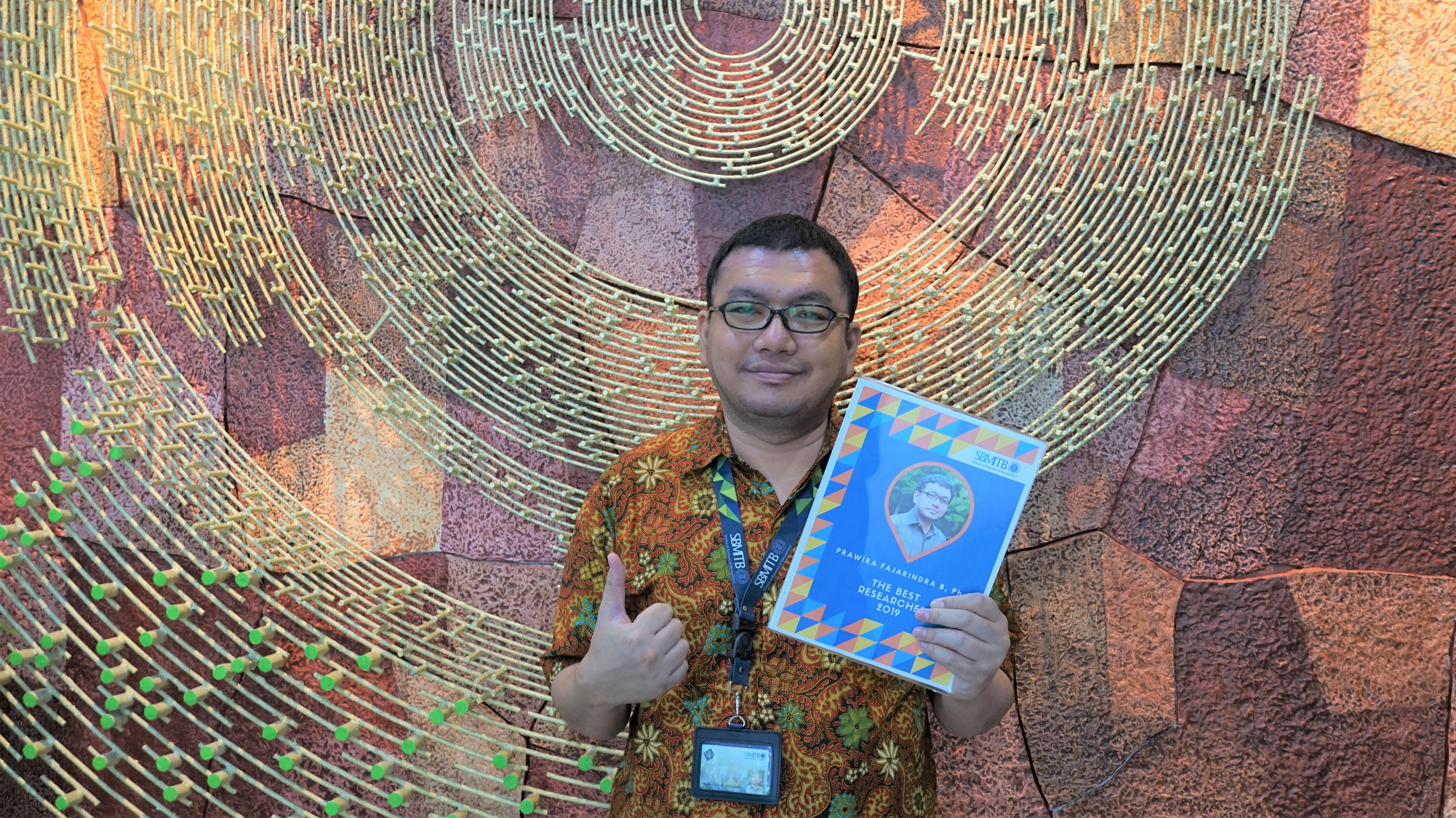Written by Student Reporter, Elisabeth Sirumapea (Management 2020)
Prawira Fajarindra Belgiawan (Fajar) is a Lecturer at the School of Business and Management, Bandung Institute of Technology (SBM ITB). He received his Bachelor’s degree from the Regional and City Planning Department, Bandung Institute of Technology. He continued his studies and received his Master’s and doctoral degrees from the Department of Urban Management, Kyoto University, Japan.
In 2019, Fajar received an award as the best researcher for SBM ITB lecturers. “The feeling after getting an award is certainly happy. Alhamdulillah. “, He said, smiling. Fajar admitted that he really liked doing research. He started research in 2010 when he was a master’s student in Kyoto.
“My professor in Kyoto University once said that a research must have a contribution to academic society or the society as a whole,” he said. That is what makes Fajar happy to do research. According to him, the more we do useful research, the more we contribute to society. “So when people do a research, their research have to give a contribution even if it is a small one,” he added.
Before becoming a lecturer at SBM ITB, after completing his studies Fajar became a researcher for 2.5 years both in Kyoto University and ETH Zürich. After that Fajar became a lecturer at SBM ITB in 2017. Fajar is now a member of the Business Strategy and Marketing research group in the School of Business and Management. Fajar’s main research interest is mostly in choice modelling.
His first research was about travel behavior. One of these travel behavior research methods, discrete choice model or choice modelling, was developed by the recipient of the Nobel Economics in 2000, Daniel McFadden. Choice modelling was first developed for transportation research. But lately, this method can be used in various fields such as marketing, health, environment, and energy. “My former supervisor in ETH Zürich said that choice model can be learned in detail in marketing literature (journals). Therefore, my research is still closely related to marketing. In addition, the basic knowledge and the research that I am doing is still in line with the research group interest.”, He said.
Because Fajar has become a lecturer with tight schedule, it is quite challenging to fully give time to do a research. Therefore, he keeps maintaining research collaboration with researchers from other universities in Indonesia and abroad. “I did not give up on doing research and one way to do that is by collaboration with my network outside ITB. By having strong networks, they can lift us up and at the same time we can also lift them. It is a synergy, “he said.
Fajar said that he was very pleased to work at SBM ITB. One of the reason is because SBM ITB requires students and lecturers to use English as the language of instruction. “I am very happy that our language of instruction is English because it will affect our writing and speaking and this is important for research dissemination which is in accordance with SBM’s vision of disseminating knowledge of business and management for the betterment of business, government, and society,” he said. Besides, all faculty members and professional staffs in SBM ITB are very supportive so that he can learn a lot from them. “We also have great students who have been tightly selected when they entered SBM ITB and other stakeholders who support each other,” he added.
“My hope is that I want to contribute to SBM not just in research, and I want to be even better because achieving something is easier than maintaining it and this is a challenge for me,” he said when he asked what he hoped after receiving this award.
“My message is don’t get too satisfied with achievement because the real challenge is to maintain it and how to get better. Today must be better than yesterday and tomorrow must be better than today. So we must be the best, whatever the challenge, we must try to be the best and the most important thing is to straighten out the intention to do the best and then Allah SWT will do the rest,” he said, smiling.




